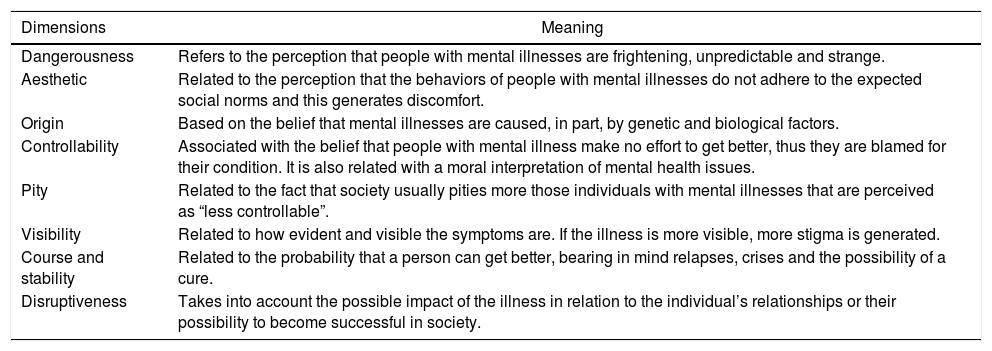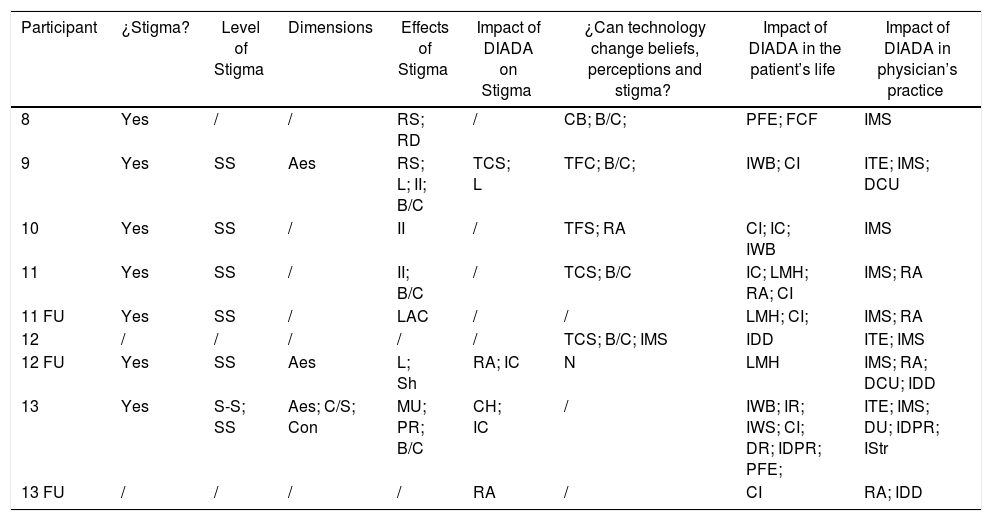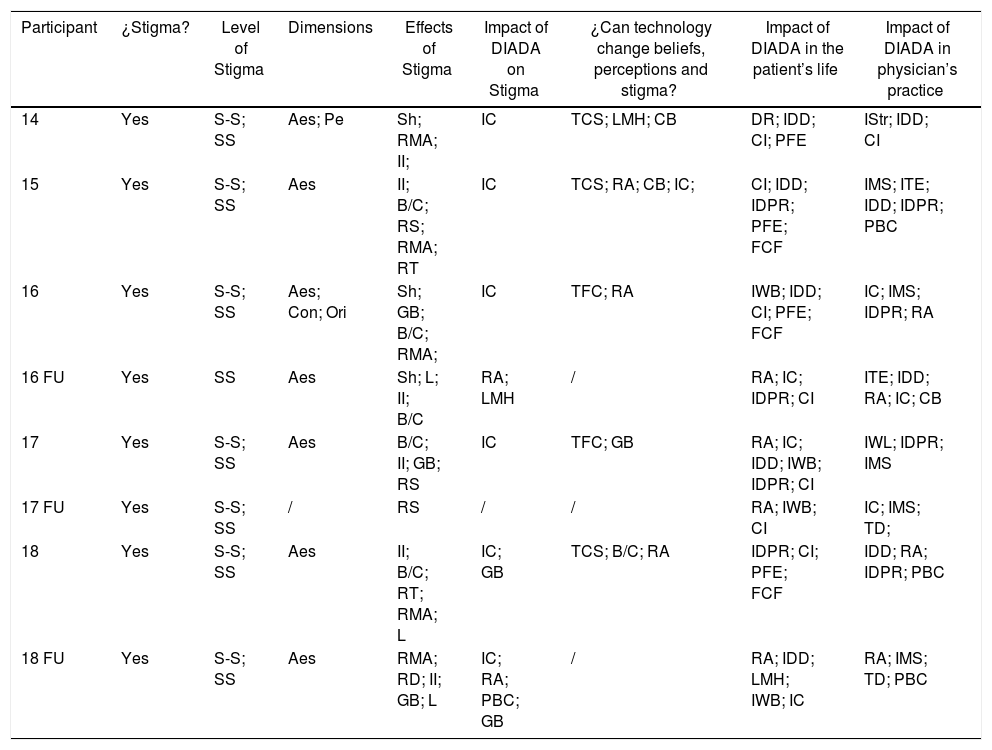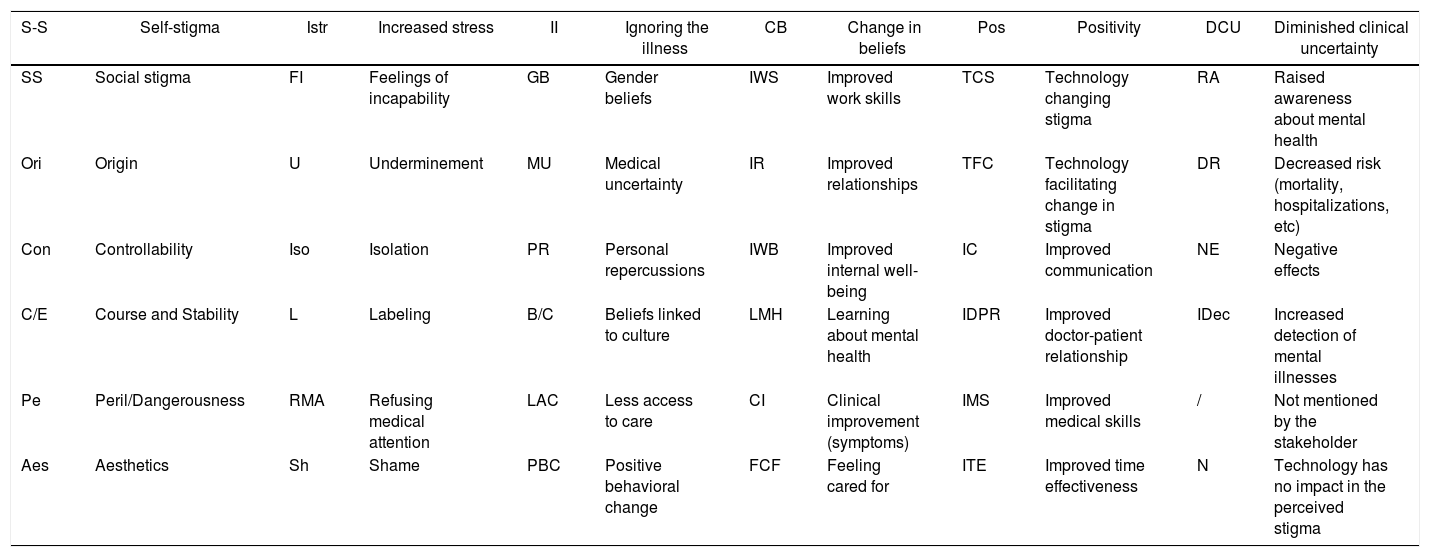Stigma is a sociocultural barrier to accessing mental health services and prevents individuals with mental health disorders from receiving mental health care. The Ministry of Health and Social Protection of Colombia acknowledges that a great number of people with mental disorders do not seek medical aid due to stigma.
ObjectivesCharacterise the perceived stigma towards mental health among the stakeholders involved in the early implementation of the DIADA project [Detección y Atención Integral de Depresión y Abuso de Alcohol en Atención Primaria (Detection and Integrated Care for Depression and Alcohol Use in Primary Care)]. Explore whether the implementation of this model can decrease stigma. Describe the impact of the implementation on the lives of patients and medical practice.
Materials and methodsEighteen stakeholders (7 patients, 5 physicians and 6 administrative staff) were interviewed and a secondary data analysis of 24 interview transcripts was conducted using a rapid analysis technique.
ResultsThe main effects of stigma towards mental health disorders included refusing medical attention, ignoring illness, shame and labelling. Half of the stakeholders reported that the implementation of mental health care in primary care could decrease stigma. All of the stakeholders said that the implementation had a positive impact.
ConclusionsThe perceived stigma was characterised as social and aesthetic in nature. Communication and awareness about mental health is improving, which could facilitate access to mental health treatment and strengthen the doctor-patient relationship. Culture is important for understanding stigma towards mental health in the population studied.
El estigma hacia la salud mental impide que personas con enfermedad mental accedan a servicios de salud mental y se beneficien de un manejo médico integral. El Ministerio de Salud y Protección Social de Colombia reconoce que personas con enfermedad mental no consultan al médico por varias razones, entre esas el estigma.
ObjetivoCaracterizar el estigma hacia la salud mental percibido por actores involucrados en la fase temprana de implementación del proyecto DIADA. Explorar si la implementación de este modelo podría ser una estrategia para disminuir el estigma. Describir el impacto de la implementación en la vida de pacientes y la práctica médica.
Materiales y métodosSe realizó un análisis secundario de 24 entrevistas a 18 actores (7 pacientes, 5 médicos y 6 administrativos) implementando la técnica de análisis rápido.
Resultados: Entre los efectos principales del estigma se encuentra: rehusar la atención médica, no reconocimiento de la enfermedad, vergüenza y señalamiento. La mitad de los actores refieren que la implementación tuvo un impacto en el estigma. Todos los actores refieren que la implementación tuvo un impacto positivo.
ConclusionesEl estigma percibido es de carácter social y estético. La comunicación y la consciencia en torno a la salud mental mejora, lo cual podría facilitar el acceso al tratamiento en salud mental y fortalecer la relación médico-paciente. La cultura es importante para entender el estigma hacia la salud mental en la población estudiada.











